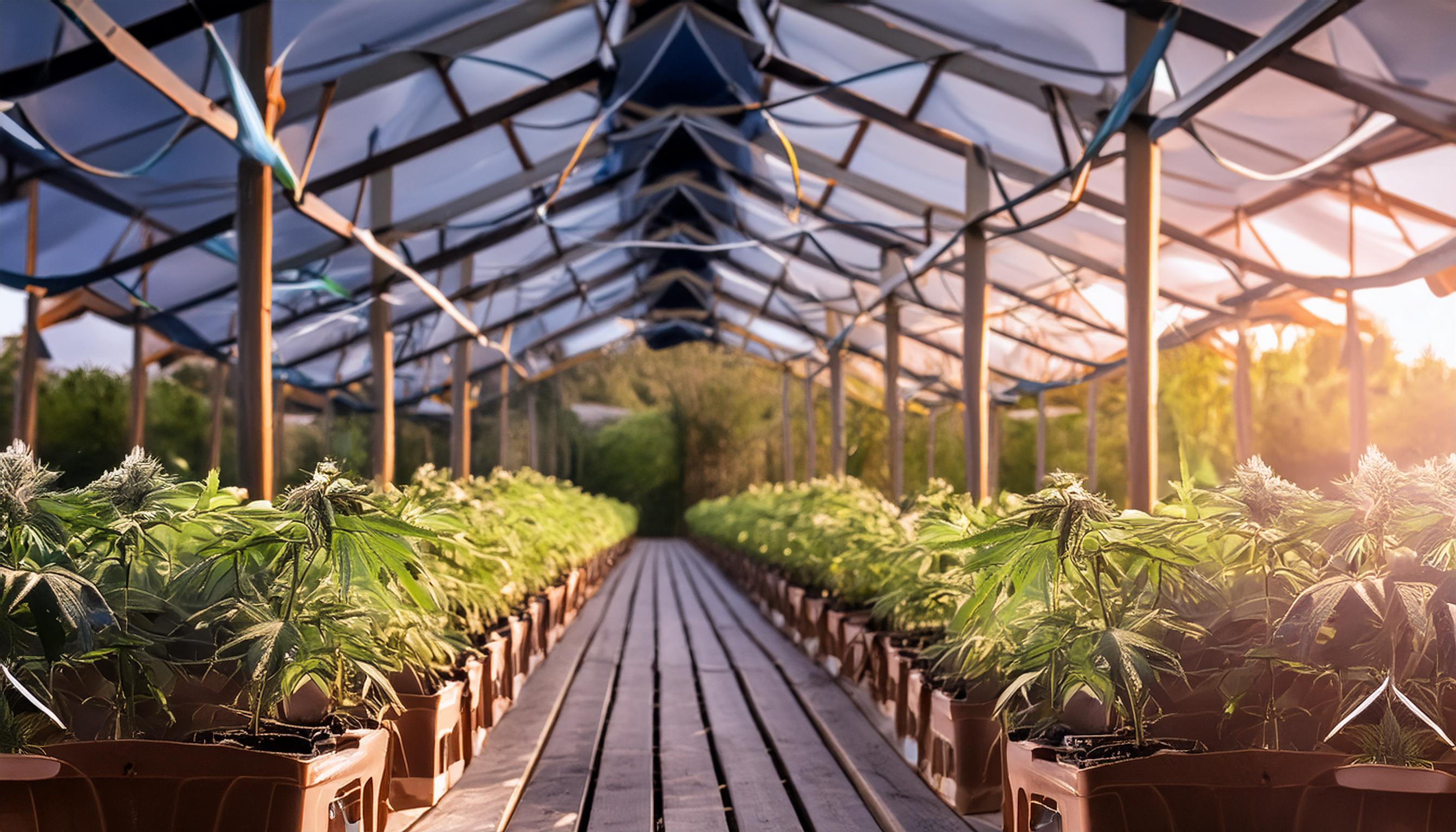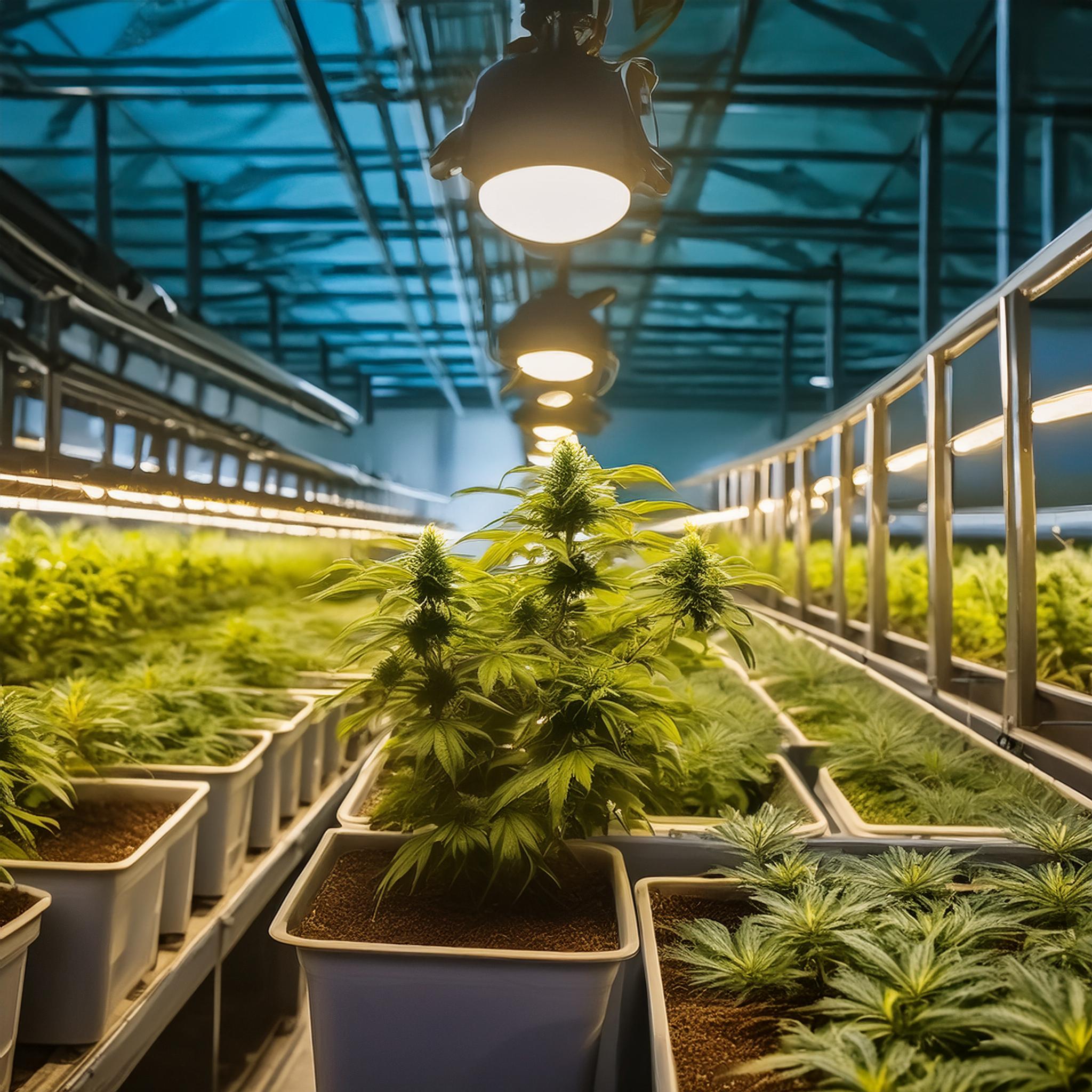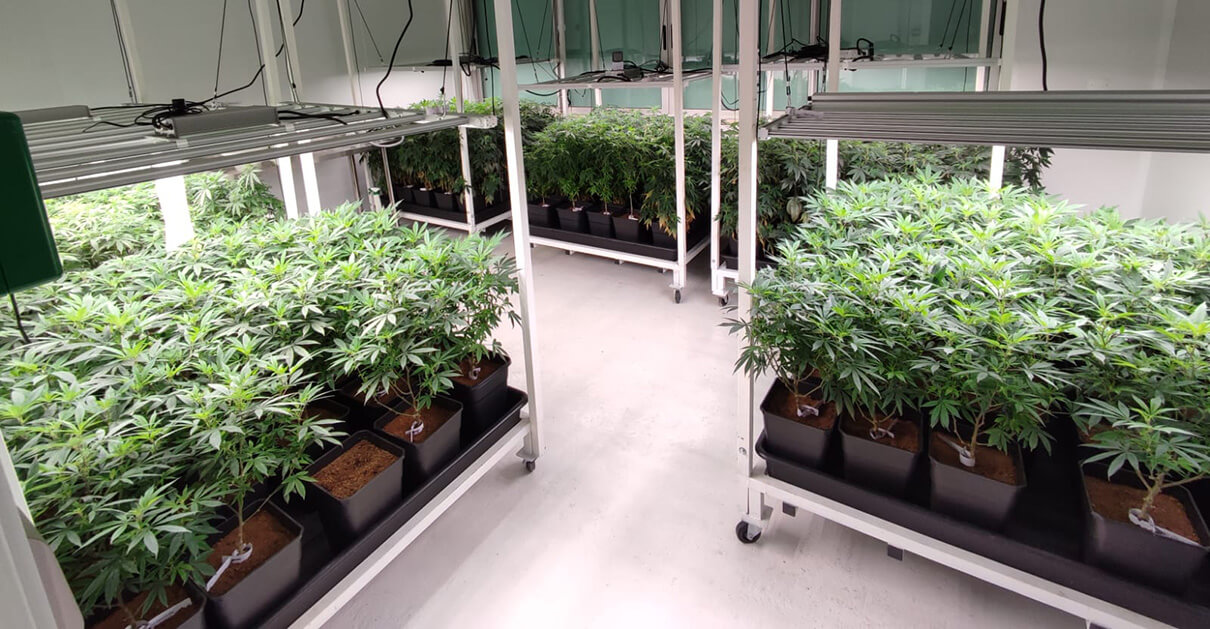Sustainable Practices in the Cannabis Industry
Jul 4, 2024
The cannabis sector is changing quickly, and with it comes the need to implement environmentally friendly sustainable practices.
This blog examines many approaches to incorporating sustainability into cannabis farming, ranging from waste minimisation techniques to environmentally friendly packaging and energy-efficient operations.

Start Your Cannabis Dispensary Today
Take Control of the Cannabis Industry’s Future.
Turn your dispensary dream into reality with Dr. Green’s expert support. Everything you need to succeed is just a click away, start your business now.
Effects of Cannabis Cultivation on the Environment
Large-scale cannabis farming has the potential to have a negative environmental impact. Large amounts of energy are needed for heating, ventilation, and lighting during indoor growth, which increases greenhouse gas emissions.
Conversely, outdoor farming may exacerbate habitat destruction, soil erosion, and water constraint. A sustainable cannabis economy requires addressing these environmental issues.
Efficiency in Energy Use and Renewable Energy
Energy efficiency is a key component of sustainability in the cannabis sector. In an effort to reduce energy use, cultivators are utilising energy-saving technologies including automated controls, LED lighting, and energy-efficient HVAC systems.
Furthermore, the incorporation of sustainable energy sources such as wind and solar power is increasingly prevalent, contributing to the decrease in the carbon footprint of cannabis farming activities.

Conserving Water and Using Irrigation Techniques
Since water scarcity is a major problem in many areas, cannabis growing places a high premium on water conservation. To reduce water wastage, growers are implementing water-efficient irrigation techniques including drip irrigation and precision watering. To reduce reliance on freshwater supplies, creative approaches to water management are also being used, such as rainwater harvesting and water recycling.
Open Your Own Cannabis Dispensary
The Future of Cannabis Is Yours to Build.
Dreaming of owning a dispensary? Dr. Green gives you the tools to make it happen. Don’t wait, start your cannabis revolution now.
Methods of Sustainable Cultivation
To lessen the impact of cannabis production on the environment, sustainable cultivation techniques are crucial. Regenerative and organic agricultural methods are becoming more popular, reducing the need for artificial pesticides and fertilisers.
To increase biodiversity and preserve healthy ecosystems, strategies including companion planting, integrated pest management, and soil conservation techniques are being investigated.
Packaging and Minimising Waste
Reducing package waste is a top priority for the cannabis industry. To reduce their environmental impact, businesses are utilising eco-friendly packaging materials including plant-based polymers and recycled paper. Furthermore, initiatives to establish recycling programmes and lower total trash output along the supply chain are being undertaken.

Build Your Cannabis Dream
Your Dispensary Awaits. Make It Happen.
Dr. Green provides everything you need to open your own cannabis dispensary and thrive in this booming industry. Don’t wait, step into the future today.
Community Involvement and Social Equity
Sustainability encompasses social justice and community involvement in addition to environmental concerns. Through their support of social programmes, job training, and education, cultivators and businesses are making investments in their local communities. Equal opportunity, diversity, and inclusion initiatives within the sector are also being given top priority.
Standards and Certification
For the cannabis sector to be transparent and accountable, sustainability certifications and standards must be established. Criteria for sustainable cannabis production are being developed by organisations like the Cannabis Sustainability Initiative and different eco-certification programmes. Adherence to these guidelines facilitates informed decision-making for consumers and fosters the expansion of viable cannabis enterprises.
Collaboration & Cooperation
The cannabis sector is known for its cooperative attitude, with growers, companies, and associations exchanging best practices and expertise to advance sustainability. Online platforms, conferences, and forums offer venues for cooperation and information sharing, allowing participants to gain knowledge from one another's experiences and work together to effect positive change.
Consumer Awareness and Education
Encouraging consumer education and awareness is essential to ensuring the cannabis sector stays sustainable. A conscientious consumer base can be developed through educating customers about eco-friendly products, sustainable farming methods, and responsible consumption. Customers can be empowered to choose sustainably and to support sustainable cannabis businesses by seeing labels and certifications that attest to the practices of these businesses.
Government Policies and Rewards
Incentives and rules from the government are essential for encouraging sustainability in the cannabis sector. Policies that promote waste minimisation, water conservation, energy efficiency, and sustainable farming methods can be put in place by governments. Businesses might be further encouraged to invest in greener technologies and implement sustainable practices by offering incentives like grants and tax credits.
Open Your Own Cannabis Dispensary
The Future of Cannabis Is Yours to Build.
Dreaming of owning a dispensary? Dr. Green gives you the tools to make it happen. Don’t wait, start your cannabis revolution now.
Embracing Sustainable Cannabis Growing in the UK
The UK limits the cultivation of cannabis to certain medical and research uses, even though it is one of the biggest exporters of medicinal cannabis. However, farmers in the UK should think about sustainable cultivation techniques now that legalisation may be on the horizon and energy costs are rising.
One major obstacle to indoor cultivation is its high energy requirements. Energy consumption can be decreased by adding natural light and ventilation, as well as by investing in energy-efficient lighting options like LED panels.
Water conservation is also essential; grey water systems and drip irrigation systems can recycle water and reduce water usage. Sustainability can be increased by considering soilless growing techniques like hydroponics and aquaponics, as well as by maintaining soil health using treatments and compost.
Growers ought to think about how their products may affect the environment. Utilising safe and organic products for both people and plants lessens the impact on the environment. Reducing environmental impact and leading by example requires remaining up to date on sustainable farming best practices as the industry changes.
Conclusion
Adopting sustainable cannabis farming practices is economical as well as good for the environment. Growers can save expenses and enhance crop quality by implementing energy-efficient technologies, preserving water and soil resources, and utilising eco-friendly items. Sustainability will become more crucial as the cannabis business develops and grows, setting up those who adopt it today for success on the road.